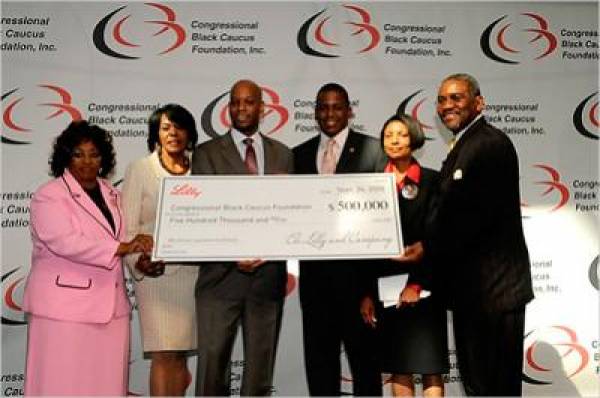The Black Caucus and Online Poker: A Perfect Fit

This weekend the New York Times ran an interesting piece related to the powerhouse Black Caucus and its relationship to the online poker industry. Yes, it's a positive one as well as controversial.
According to the Times, by taking advantage of political finance laws, the caucus has built a fund-raising juggernaut unlike anything else in town. Its corporate sponsors include the likes of Wal-Mart, AT&T, General Motors, Coca-Cola and Altria, the nation's largest tobacco company, not to mention a few of the bigger online poker rooms.
From the New York Times:
From 2004 to 2008, the Congressional Black Caucus's political and charitable wings took in at least $55 million in corporate and union contributions, according to an analysis by The New York Times, an impressive amount even by the standards of a Washington awash in cash. Only $1 million of that went to the caucus's political action committee; the rest poured into the largely unregulated nonprofit network. (Data for 2009 is not available.)
In regard to the financial contributions, the Caucus leaders insisted they were not influenced by them.
"We're unbossed and unbought," said Representative Barbara Lee, Democrat of California and chairwoman of the caucus. "Historically, we've been known as the conscience of the Congress, and we're the ones bringing up issues that often go unnoticed or just aren't on the table."
Online poker companies have been lobbying in Washington to pass legislation which would make it easier for players to open accounts on the Web. Current legislation, The Unlawful Internet Gaming Enforcement Act (UIGEA), places pressure on the banking sector by prohibiting transactions from the so-called "illegal" Internet gambling sites. The financial sector insists it has no way of differentiating between the "good" (state lotteries and horse bets) and the "bad" (poker and sports betting).
The Black Caucus holds the position that online gambling should be legalized and its community will support the multi-billion dollar industry.
"Black people gamble. Black people smoke. Black people drink," Lee told the New York Times. "And so if these companies want to take some of the money they've earned off of our people and give it to us to support good causes, then we take it."
Among the good causes were recent fund raising efforts by online gambling companies to help those in Haiti following the devastating earthquake there last month. DoylesRoom.com, PokerStars.com and a whole host of other online poker rooms were among those who held special tournaments to assist the more than one million people affected.
While some might argue that gambling does little to help urban blight, one only needs to look at the Seminole Tribe of South Florida to realize the positive impact gambling has on a specific community, when structured properly. The Seminole Tribe runs the highly successful Hard Rock Casino in Hollywood, Florida.
Then there are the poker stars themselves. A few of the most successful happen to be African American.
There is Phil Ivey, David Williams and Paul Darden, just to name a few.
Darden and Ivey both give extensively to Black causes.
In March of 2008 Ivey donated $50,000 to Empowered 2 Excel, a Las Vegas charity for underprivileged kids, and later that week created the Budding Ivey Foundation, a non-profit organization to continue the work of his grandfather, Leonard "Bud" Simmons. The foundation raised $260,000 (mostly for Empowered 2 Excel) at a July 3, 2008 charity poker tournament, and is also involved in children's literacy projects and programs to feed the homeless.
Darden, who was accused of murder at the age of 15 while hanging out with drug dealers and robbers in the ghettos of New Haven, Connecticut, wants to bring poker to the African American community. "There is going to be salt and pepper all over the casinos when they see me win a big event."
Alejandro Botticelli, Gambling911.com








